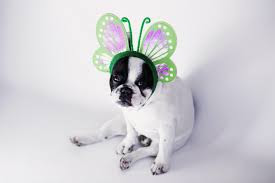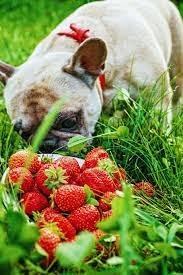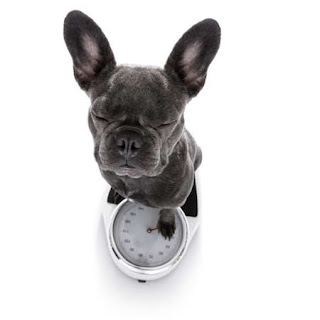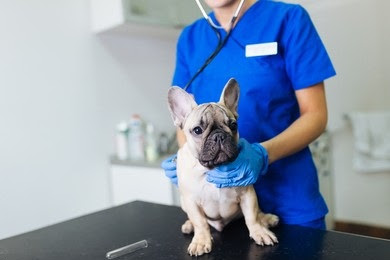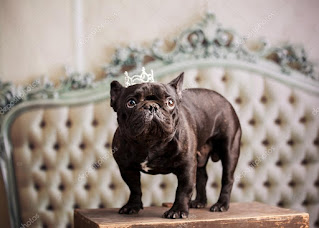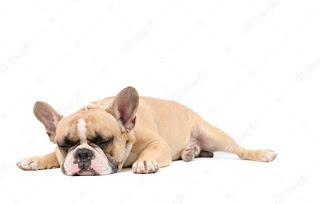Bulldog Care Guide
Stocky bodies, heavy jowls, wrinkled skin, and "pushed in" features are all characteristics of English Bulldogs. They are attractive and entertaining canines who make excellent pets. English bulldog puppies require basic puppy care, but they also require some special attention due to their unique characteristics. Just make sure you're aware of your puppy's unique requirements, and it'll be a devoted companion for years to come.
Include regular care in your English Bulldog's daily routine to help her live a longer, healthier, and happier life. The value of a healthy diet and exercise regimen cannot be overstated.
- As you would a kid, keep an eye on your pet. Close doors, tidy up after yourself, and section off rooms as needed. This will keep her out of mischief and away from things she shouldn't eat.
- She doesn't require much grooming. At least once a week, brush her coat as needed.
- Because bulldogs' teeth are prone to significant issues, you'll need to brush them at least three times a week!
- Even as a puppy, clean her ears once a week. Don't worry, we'll teach you how to do it!
- To avoid infections, her deep wrinkles must be cleansed and dried on a regular basis.
- She may have a propensity to be lethargic as an adult, so make sure she gets enough exercise by taking her for a regular stroll.
- She is susceptible to extremes of temperature; avoid extended exposure and be on the lookout for indications of heat exhaustion.
- Maintain a regular diet for your dog and avoid feeding her human food.
- Feed her a high-quality, age-appropriate food.
- Regularly exercise your dog, but don't overdo it at first.
Feeding Your Puppy
Gradually switch food brands. Purchase a little amount of the food your dog was eating before you brought it home. As a result, your puppy's system will not be shocked by the introduction of a completely different diet. If you wish to switch brands, do it gradually. For a week, mix 1/2 and 1/2, then 1/4 and 3/4 for a week, and then complete the changeover.
Maintain a consistent feeding plan for your dog. For the first four months after birth, you should feed it three times a day on a regular basis. After 6 months, you can reduce to 2 times a day, and after 12 months, you can reduce to once a day.
Feed a high-quality, well-balanced meal to your English bulldog puppy. For the most part, commercial food is fine for your dog. Examine the first five ingredients on the dog food label; meat (not meat by-products, which are fine but should be further down the list), vegetables, and grains should be the first one or two.
- An English bulldog may show signs of food intolerance to one or more of the ingredients in a food from time to time (diarrhoea, vomiting, or skin problems). If your puppy or dog exhibits these symptoms, consult your veterinarian to establish the reason, and then adhere to a strict lifetime diet to reduce symptoms.
Feeding your dog people food, especially items that are harmful to its system, is not a good idea. It's important to remember that some human meals might make a dog sick or even kill it * . Dogs get poisoned by a variety of foods, including (but not limited to):
- Avocados
- Alcohol
- Chocolate
- Grapes and raisins
- Chives, onions, and garlic
- Nuts
- Yeast doughs
- Anything that contains the sweetener xylitol, which is commonly found in sugar-free gums.
Keep an eye on your dog's weight. Because English bulldogs are prone to gaining weight quickly, you must keep an eye on your puppy to ensure that he does not become overweight. If your puppy is gaining too much weight, speak with your veterinarian about the best and safest approach to maintain a healthy weight for your dog.
- Treats add calories to the diet, therefore they should only be given in little amounts and infrequently. These should be saved for when your puppy is learning to walk.
- On a monthly basis, check your bulldog's body condition score (BCS) to see if it is overweight (or underweight). When seen from the side, a normal-weight dog will have a “tucked” belly and ribs that may be touched but not visible. As fat builds here and on the rib cage, an overweight dog will lose the abdominal tuck. An underweight dog's abdominal tuck will be more severe, and its ribs will be easily touched and seen.
Always have clean, fresh water on hand. This is particularly useful in hot or humid conditions, but it should be available at all times. Also, because bulldogs can be rather slobbery, remember to wash out food and water dishes with soap and water a couple of times a week.
Taking Care of Your Puppy's Health
When the puppy comes at your house, keep an eye out for teething. To assist with this changeover phase, please give plenty of chew toys. Cow hooves are available at most pet shops and are highly recommended. Avoid pig ears and cheap rawhide, as well as "greenies," which can cause severe diarrhoea, bloat, and choking.
Keep an eye on your puppy's health. If you alter your dog's diet, for example, keep an eye out for diarrhoea. Stop feeding your bulldog for 12 hours if he has diarrhoea. If it lasts more than 24 hours, see your veterinarian right once to avoid dehydration. Puppies can quickly get dehydrated, so if diarrhoea arises, you should take it carefully.
Prevent neighbourhood pests with a preventive treatment for your dog. Ticks, fleas, mites, lice, and intestinal worms can all be picked up by dogs. If you don't treat your dog for these pests on a regular basis, your dog might become an ideal host for them. Your veterinarian is the finest source of information on the local bugs that afflict the local canine population, as well as how to avoid them.
- Heartworm is a mosquito-borne illness that may be found across much of the United States * . A annual blood test is done to ensure that the dog isn't infected with the parasite, and then a monthly pill or a 6-month injection is used to destroy any organisms found in the bloodstream. Heartworm treatment is available, but it is costly, takes a toll on the dog's health, and can take months to complete.
- Lyme disease vaccine is another option to explore, especially if you reside in an endemic area. This is particularly essential for dogs that spend a lot of time outside, live on farms, or hunt, since they are more likely to develop this tick-borne disease. As a result of getting Lyme's disease, dogs can develop a typically deadly kidney condition in addition to joint discomfort, swelling, and fevers.
Take your dog to the vet on a regular basis. Puppies are usually taken to the veterinarian for the first time at the age of six weeks by the person who owns the mother dog. The puppies will be examined by the veterinarian to ensure that none of them have hernias, heart, lung, or eye or ear issues. They will usually be dewormed and given their first puppy injection (the distemper vaccine) around this time. The de-wormer and distemper vaccinations will be given again at 9 weeks and then again at 12 weeks. These can then be administered once a year or on a timetable that you and your veterinarian decide on
- The rabies vaccination will be administered at the 12-week appointment, however this may vary according on local legislation. Many communities need this vaccine. If your dog is not rabies-vaccinated, there might be serious consequences, especially if the dog attacks a person or another creature.
- More regular checkups will be required as your dog grows older. Medical concerns can be detected twice a year before they become major problems. Arthritis and heart disease are common in senior dogs, just as they are in senior people. There are efficient and safe therapies available to help your senior dog live a pain-free and enjoyable golden years.
When your puppy reaches the right age, de-sex it. Your puppy should be spayed (females) or neutered (males) as soon as possible. Aside from the health benefits for the dog (lower risk of certain cancers and infections), there is a significant societal benefit in the reduced number of undesirable pets. Microchipping is also recommended in case your dog becomes separated from you.
xamine Once a week, clean the ears of an English bulldog. Look for discoloration in the inner ear, which is generally white or darker in colour and corresponds to the colour of the dog's coat. Ears of the puppy should not smell, and there should be no discharge in the ear or on the flap. Debris, filth, and parasites such as ticks or mites should not be present in the ear. Any of the following is out of the ordinary:
- The ear is scratched or pawed.
- Excessively shaking the head
- From the ear, a waxy fluid or a brown discharge.
Regularly clean your puppy's ears. You can clean the ears with a product designed specifically for cleaning dog ears. Using a cotton ball, soak up the liquid and gently wipe it inside the dog's ear. If you have any doubts or suspect an ear infection, have your veterinarian inspect the eardrum using an otoscope.
- Never put a q-tip or other similar substance into your ear canal. When a dog's ear canal hits the head, it makes a steep curve. Because you won't be able to view the full ear canal, don't try to put anything in it.
Brush the teeth of your English bulldog puppy on a regular basis. * Brushing your teeth everyday (or at least 2 to 3 times a week) will eliminate the germs and plaque that accumulates on the teeth throughout the day. It also provides you a wonderful chance to check your dog's mouth for loose or damaged teeth, lesions, growths, or anything odd, and bring them to your veterinarian's attention before they become major issues.
- Never use human toothpaste on a dog; only use canine-specific dental toothpaste. Human toothpaste contains fluoride, which is toxic to dogs and can cause significant health problems.
- Apply a small amount of puppy toothpaste on your fingers and let your dog to lick it away. Put it on your finger the next day and massage it along your outer gums. Then try putting a bit on a dog toothbrush, letting the puppy lick it, and then running the toothbrush over the teeth and gums' outer borders. Only the outside (against the cheeks) should be brushed. Brushing the puppy's teeth should only take approximately 30 seconds.
- Dogs may require dental cleanings even if they wash their teeth regularly. Plaque and germs can accumulate beneath the gum line, creating issues there and in the teeth's roots. Regular oral examinations by their canine dentist should be done once a year, just like with their human owners.
Preparing your puppy
Clean your puppy on a regular basis. Because of the English bulldog's skin folds, especially those on the face and around the lips, daily examinations for symptoms of infection will be necessary. In these dark, warm, and damp places, normal yeast found on the body will proliferate. At least every other day, and more frequently in dogs prone to illnesses, these should be gently washed and completely dried.
Brush your puppy on a regular basis. Because the English bulldog's short hair coat sheds, a thorough brushing with a soft-bristled brush once a week is recommended. Keep an eye out for fleas, ticks, or mites, as well as any lumps, bumps, or cysts on the skin, while grooming. These, as well as any scabs, redness, or itchy skin, should be brought to the attention of your veterinarian.
Examine your puppy's feet on a regular basis. Brushing time is an excellent opportunity to examine the nails and paws. It's possible that the nails will need to be trimmed. If you've never done it before, ask your veterinarian technician to show you how. The procedure must be performed correctly to avoid trimming the "quick," or the part of the nail that contains the blood vessels and nerves.
- Due to the dread of pain and bleeding, it will be difficult to trim your puppy's nails once he or she has been "quicked," or the quick has been cut.
Training
Give direct instructions to your new puppy. Puppies will follow a pack leader instinctively, and you must be that pack leader. * You, as the puppy's leader, must teach the puppy how to behave and integrate into their new surroundings. They're neither baby geniuses nor mind readers. They require patience and a lot of positive reinforcement. If you're having trouble dealing with an issue, seek the help of a professional canine behaviour specialist in your area.
You should teach your puppy to obey your orders. You should train your puppy to sit, stay, and come when called. It's also crucial to start house training your puppy as soon as possible. * When you apply positive reinforcement with your puppy, all of this training will go much more smoothly. Instead of penalising your dog when it does something wrong, make it a delightful experience when it does something right. When your dog follows your directions, reward it with a food (either a snack or praise and love) and the puppy will want to do what you say!
- It's also crucial to teach your dog to heel while on a leash. It not only helps your puppy learn to follow directions, but it also allows them to get some exercise and socialising outside of the house. Just be careful not to over-walk your puppy. Don't stroll your little puppies into the ground because they will poo.
Start socialising your puppy as soon as possible. Socialization is critical to ensure that your puppy gets along with other canines, animals, and people. Puppies under the age of 14 to 16 weeks are the most receptive to socialisation, since they become more cautious of new circumstances, humans, and other animals as they become older.
- Allow your puppy to become accustomed to travelling in the car and going for walks around the neighbourhood. It's also a good idea to practise with people of diverse ages, sizes, colours, and genders (safely and in a friendly way). Also, be sure to expose him to friendly dogs and cats in a safe manner.
- Puppy socialisation or obedience lessons, conducted at big pet stores, veterinary clinics, or through community courses, are a fantastic method to introduce the puppy to people and dogs.
Give your dog a lot of love and attention. You and your new dog must develop a loving and trusting relationship. While it's critical for the puppy to understand and obey your orders, it's equally critical for the puppy to feel loved and cared for. Every day, spend quality time with your new puppy, ensuring that the most of it is spent playing and snuggling rather than rigorous instruction.
Special needs for bulldog puppy
Maintain a comfortable temperature for your English bulldog puppy. Temperature is a factor for these pups. They are susceptible to heatstroke and are equally susceptible to cold.
- During the summer, make sure your dog is kept cool. Any temperature of 90 degrees or more is extremely hazardous. If you take your puppy out on a hot day, make sure to wet it down and give it plenty of water.
- During periods of high heat, keep the puppy's time out to a minimum.
- Bulldog puppies are prone to becoming chilly. To avoid acquiring a cold, maintain it in a warm atmosphere throughout the winter months. Keeping the puppy warm outside during the winter months may necessitate the use of a jumper or sweatshirt as well as doggy booties. It should not be stored at temperatures below 60 degrees for long periods of time.
Keep an eye out for indications of allergies in your puppy's coat. Bulldogs, like other popular breeds, are genetically susceptible to Atopic Dermatitis, a skin disorder that causes skin irritation. * According to research, 85 percent of dogs with allergies to pollens, mites, and mould spores are among the 30 percent of dogs with allergies. If your puppy's skin gets red and inflamed, speak with your veterinarian about treatment options.
Keep an eye on your puppy's respiration. Bulldogs are prone to respiratory and breathing problems due to their small snout (nose). Hot temperatures, humid weather, very vigorous activity, and any sickness affecting the nose, throat, or lungs will make it difficult for your bulldog to breathe. During hot or humid weather, confine your puppy to an air-conditioned room and only exercise it inside during extremes of weather.
- It's important to stop the activity and give your bulldog a break if it starts panting.
Additional Tips
Make a special place for them.
Dogs want to feel safe and at ease. They become anxious and nervous if they do not have their own space to rest, sleep, or escape from a storm or noises. Your bulldog should have his own private, comfortable space where he knows he can go whenever he wants or needs to. Give him a nice dog bed that is just his size, with toys nearby, and perhaps a blanket that he can snuggle up with. If you crate your bulldog, make it as pleasant as possible for him inside so he understands he may go in and out as he pleases.
Bulldogs make excellent family dogs because they are eager to love and be loved by all members of the family. With their amusing personalities, they can be quite the cut-up and keep their owners on their toes. It's no surprise that bulldogs are so high on the AKC register; they're just all-around wonderful dogs to have as a pet.
Have plenty of chew toys
It is in the nature of all dogs to chew. Chewing serves multiple purposes: chew toys and bones assist your bulldog get through his teething period when he is a puppy. They, like human newborns, require the ability to chew in order to cope with pain and discomfort, as well as to aid in the removal of loose baby teeth. Having chew toys and bones on hand for your bulldog will help them avoid chewing on things they shouldn't, such as your personal belongings. If a dog is nervous, anxious, or bored, he or she is more likely to pick up a shoe or chew on a piece of furniture if they don't have enough toys to chew on.
Keep an eye on your puppy's respiration
Bulldogs are prone to respiratory and breathing problems due to their small snout (nose). Hot temperatures, humid weather, very vigorous activity, and any sickness affecting the nose, throat, or lungs will make it difficult for your bulldog to breathe. During hot or humid weather, confine your puppy to an air-conditioned room and only exercise it inside during extremes of weather.
It's important to stop the activity and give your bulldog a break if it starts panting.
Do not leave your bulldog alone in or around the pool
Bulldogs have short legs and a large, round stomach. They also have only a stub for a tail, making them poor swimmers. If your Bulldog falls into the pool, he or she will almost certainly drown in a matter of seconds.
Some Bulldogs, though, are unable to resist the allure of the water. If you want to let your Bulldog swim in a pool or any other body of water, make sure he or she is wearing a swimming vest. Remember to keep an eye on your Bulldog at all times.
Do not permit your bulldog to eat too quickly
Some Bulldogs like devouring food as quickly as possible. They are more likely to choke as a result of this. Getting a slow-feeder for your Bulldog is a smart option if he eats so quickly.
Also, avoid offering your Bulldog rawhide, tiny toys, or anything else that might cause him to choke.
Never let your bulldog run outside off leash
Bulldogs may be sluggish, but they are quick to flee when they spot anything interesting. They could flee, pursue it down, and collide with it.
Bulldogs are also susceptible to theft, particularly in yards with no fences. So, anytime your Bulldog is outside, be sure to keep an eye on him.
Choose a veterinary with bulldogs experience
Because bulldogs are a unique breed, their health issues are frequently handled differently than those of other dogs.

